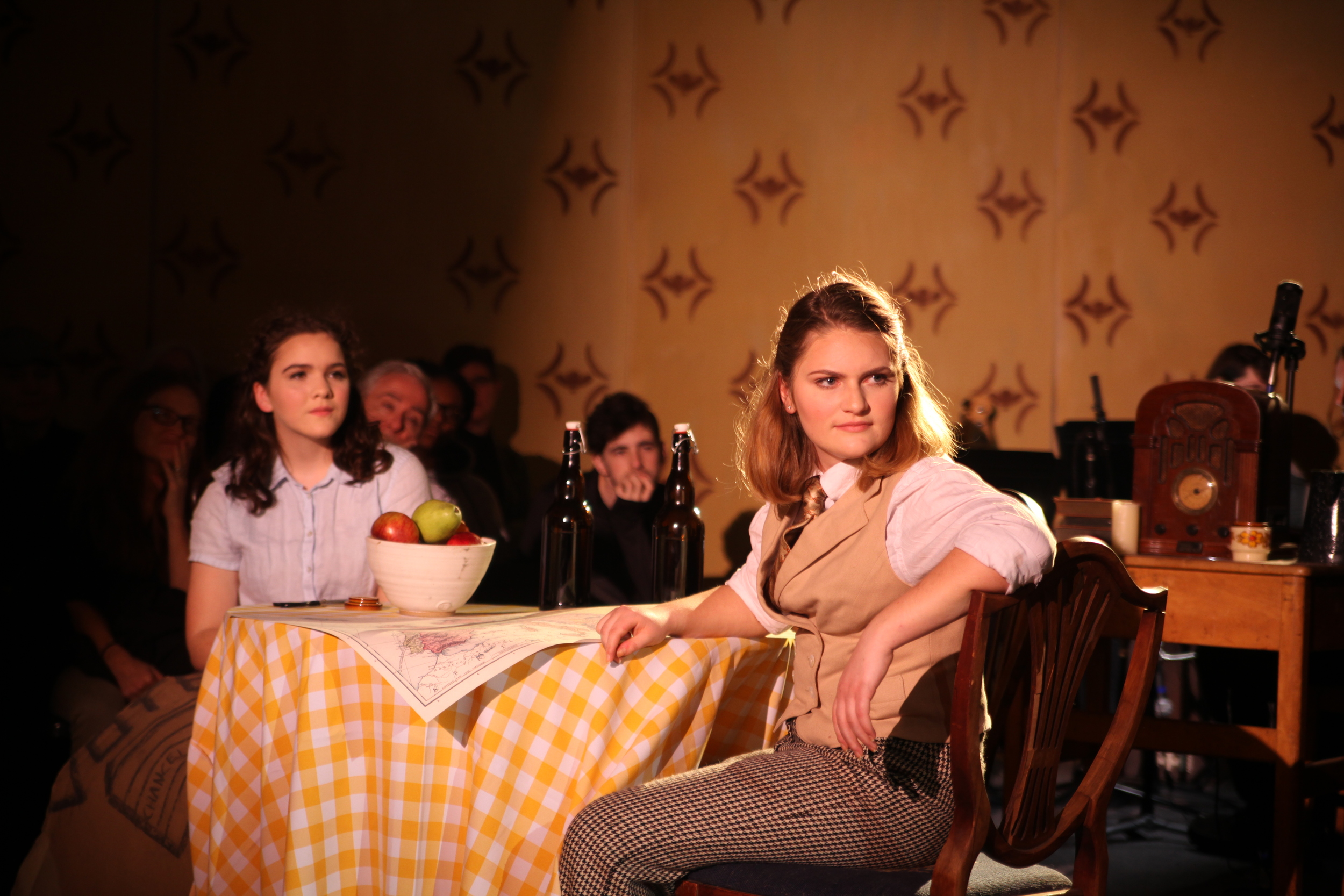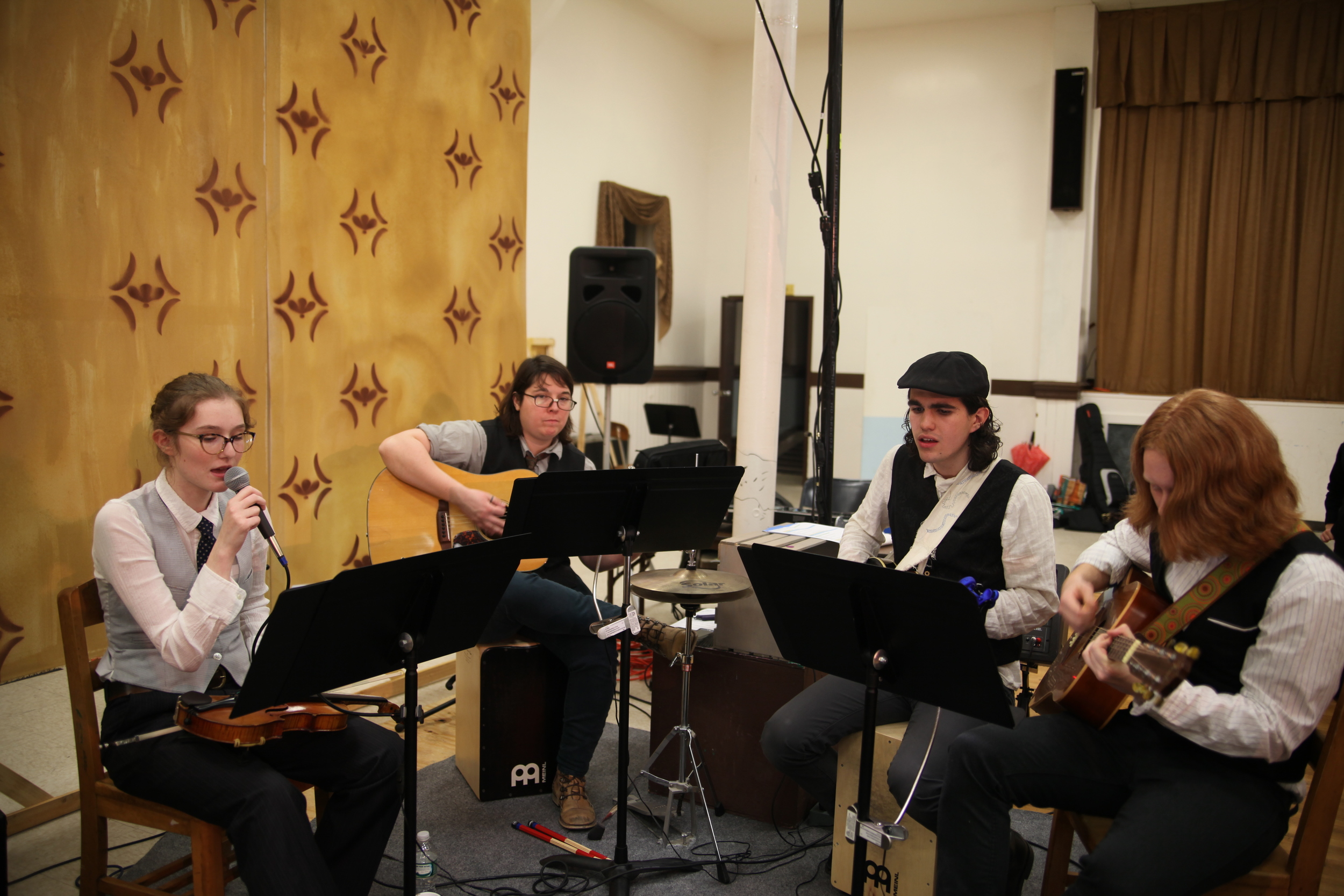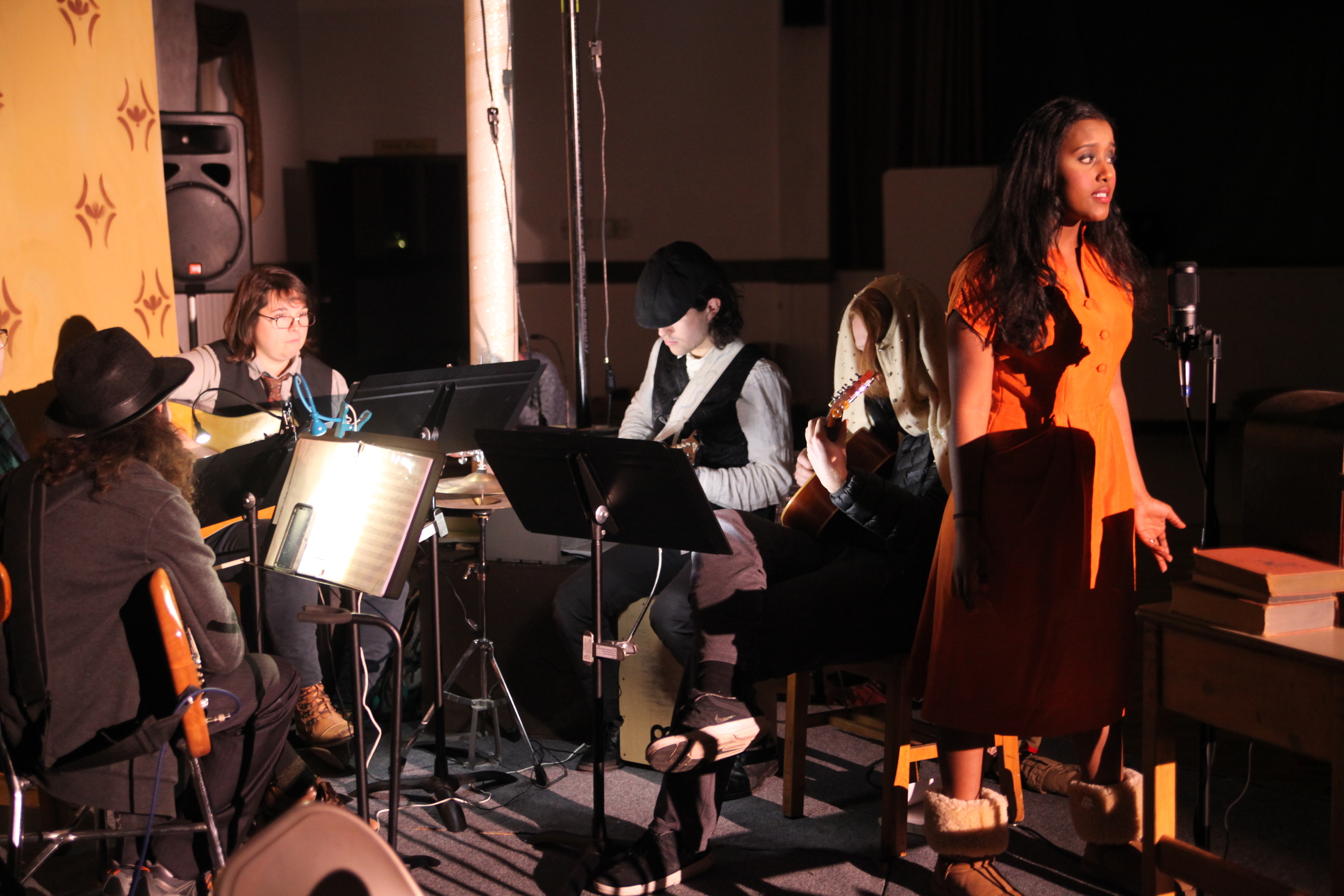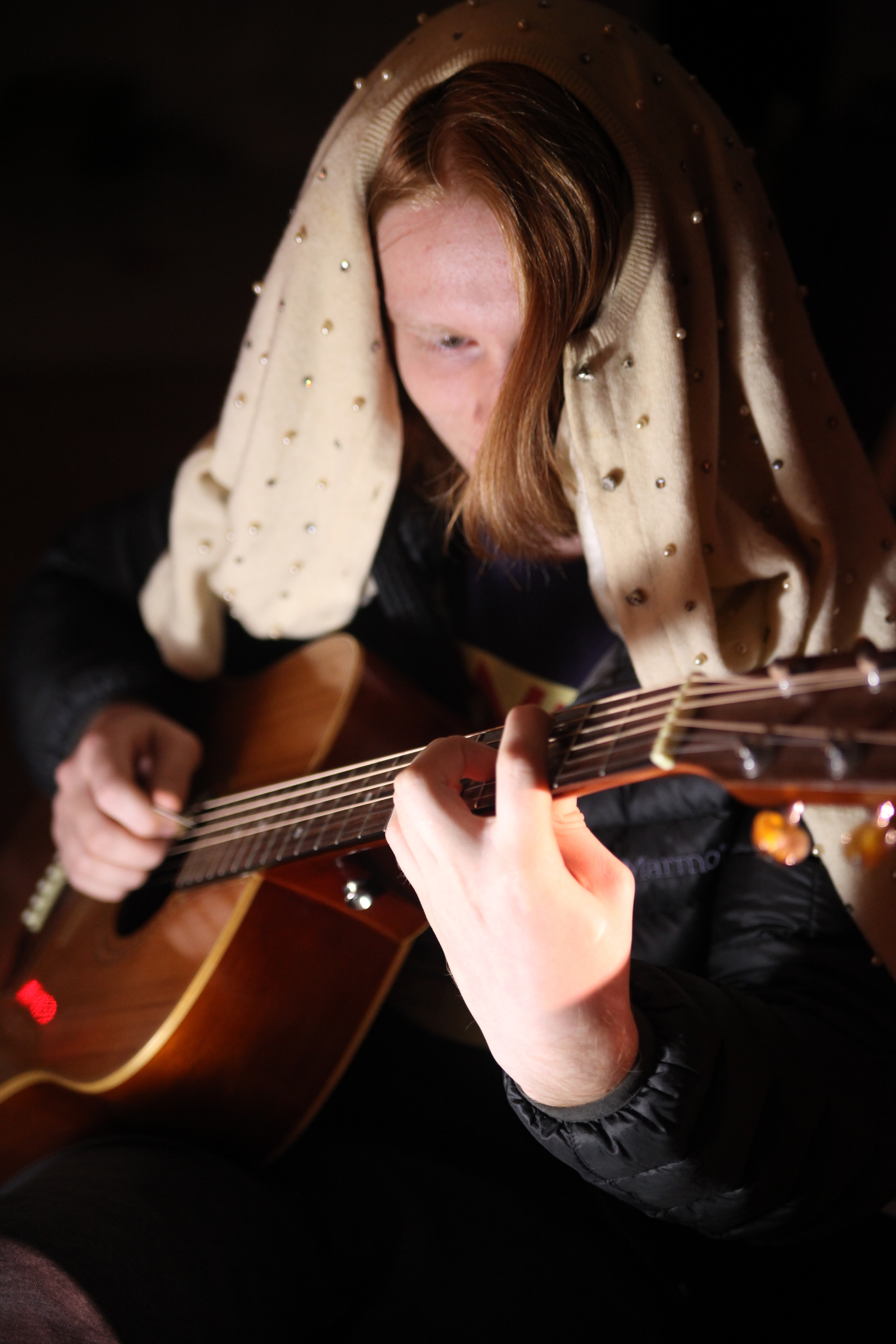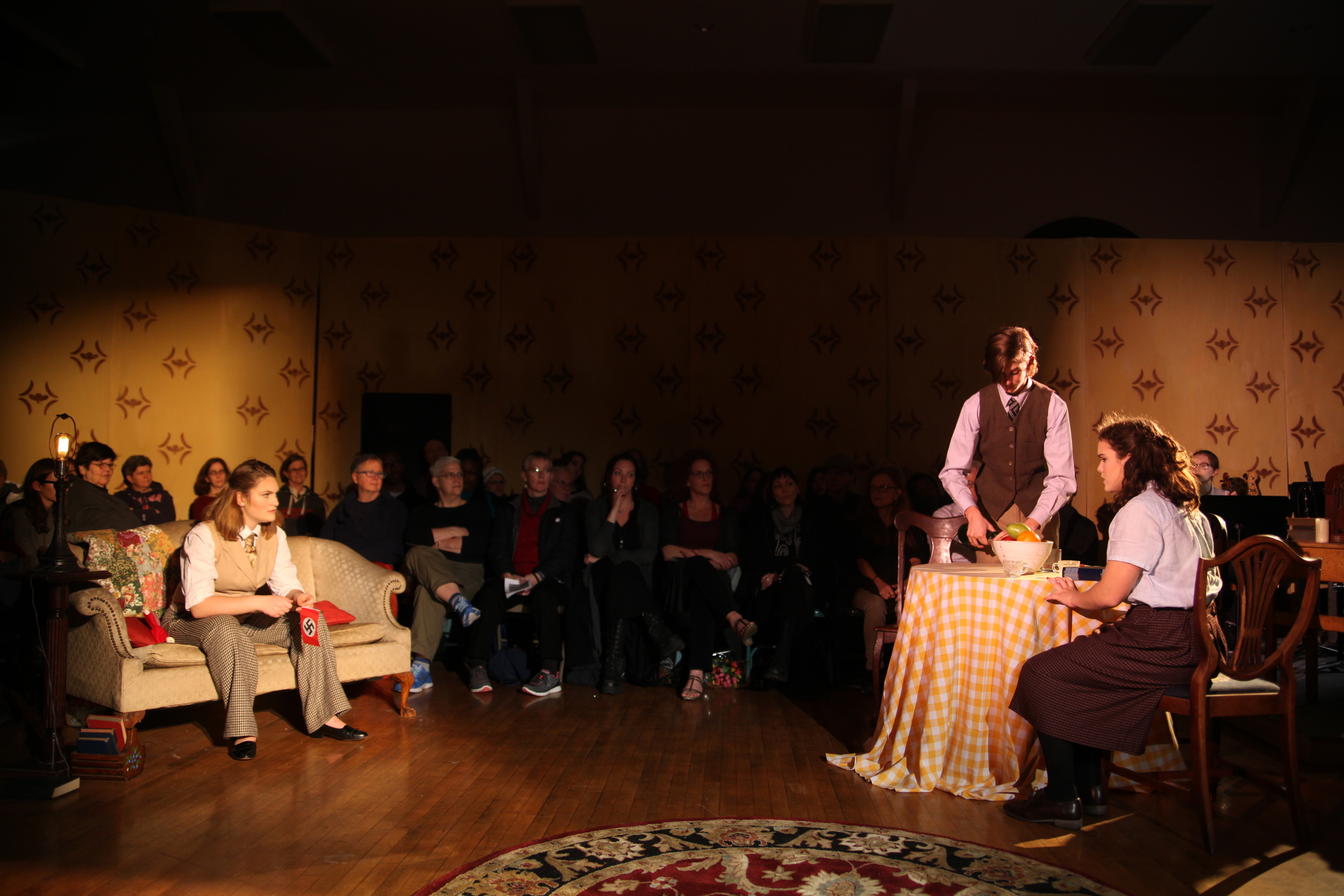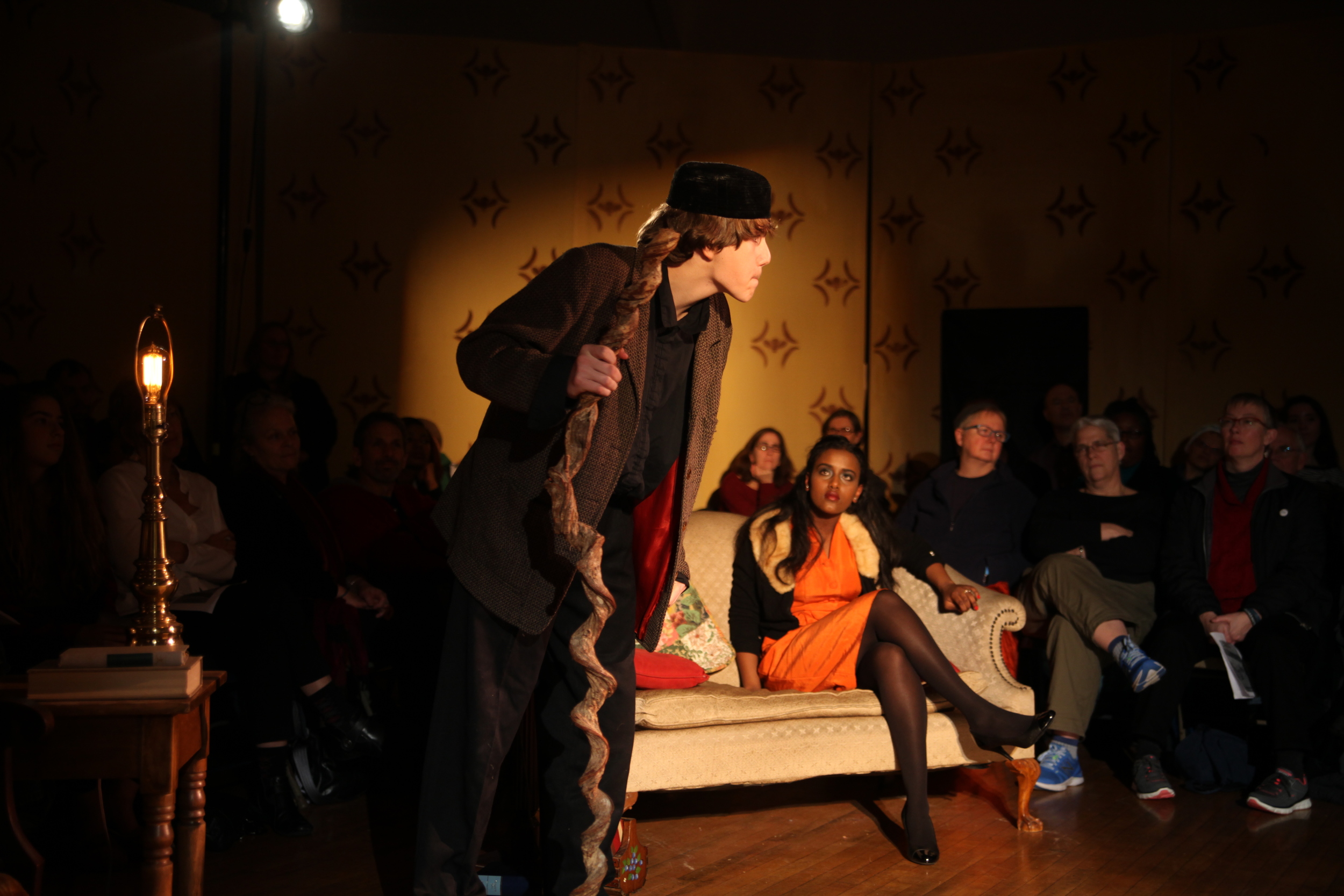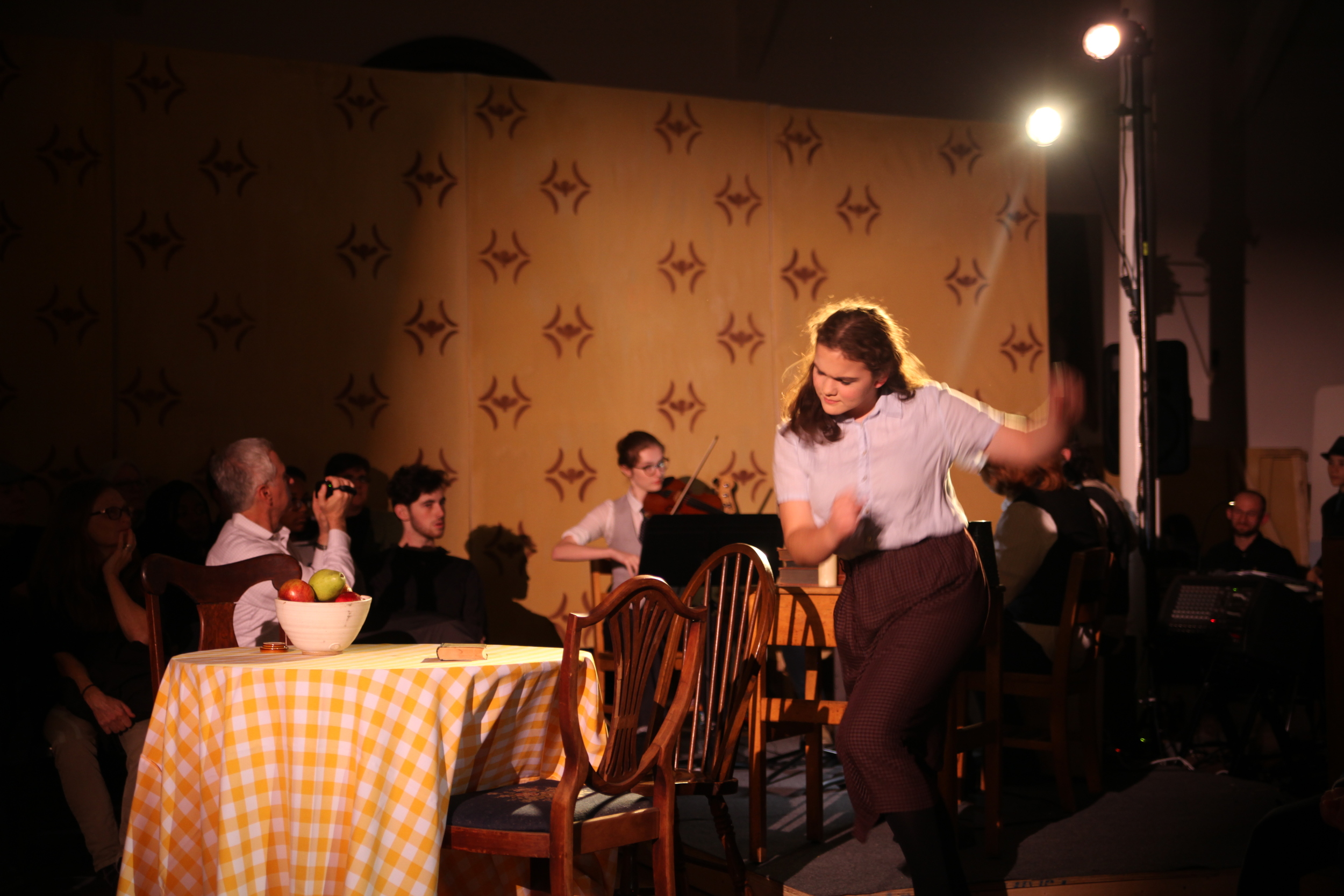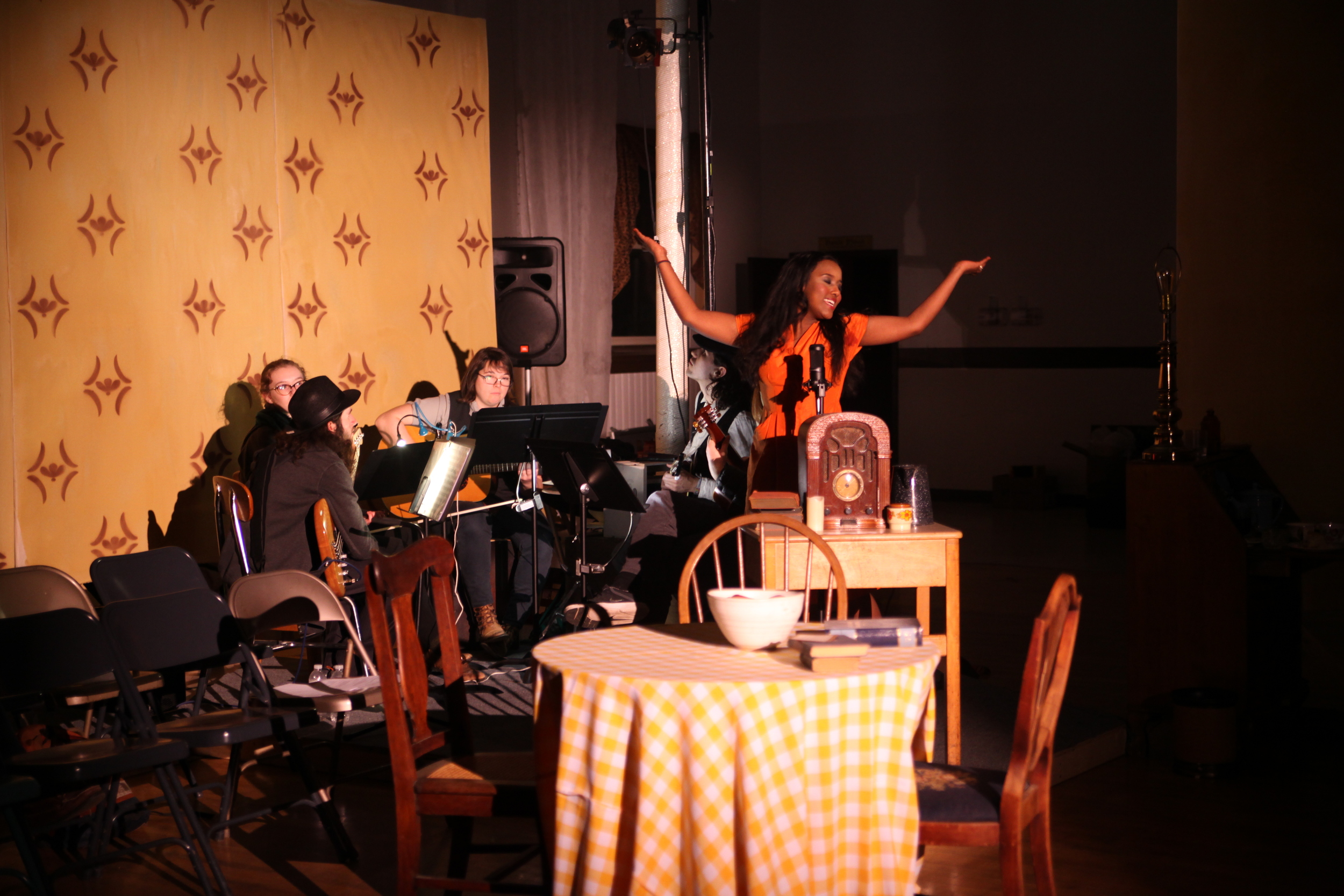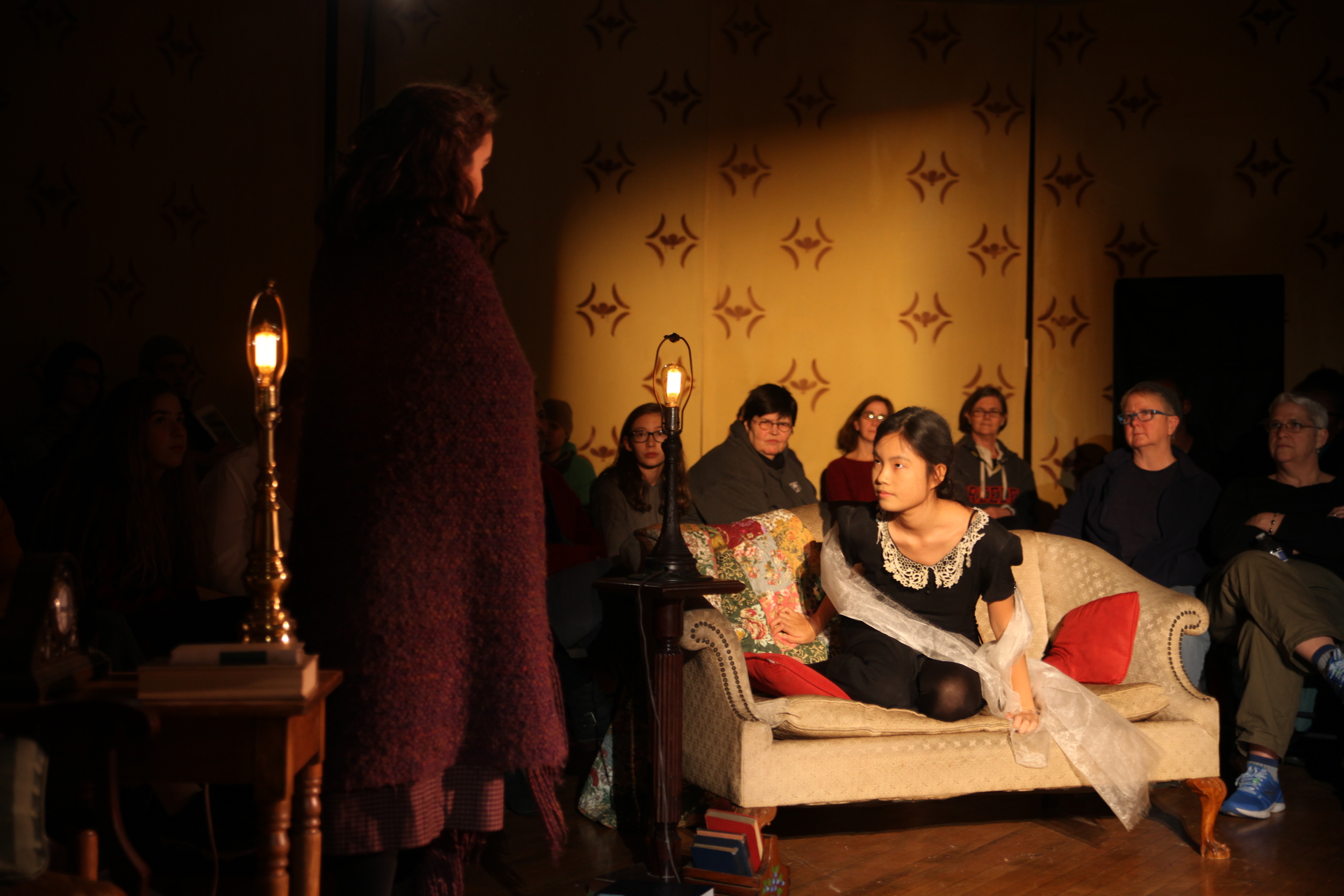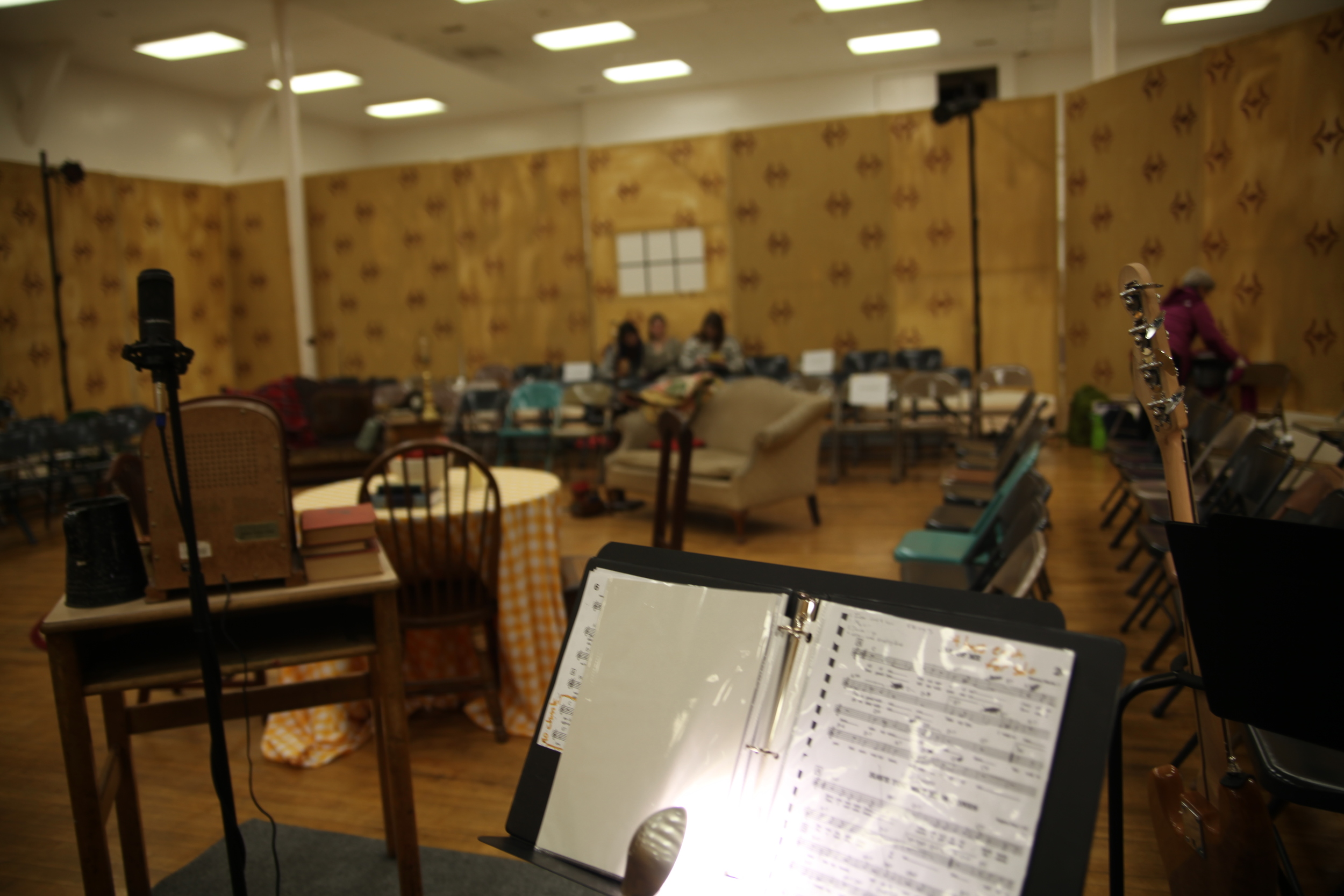Jazz is the Ultimate Team Sport: Students Design Music for the Fall Play
Since she began work as a music teacher at Meridian, almost every theater production at the school has featured some element of Laura Jaye’s work. A few highlights include the fairy lullaby she wrote for A Midsummer Night’s Dream; the creepy Puritan-era hymns she arranged in harmony for The Crucible; Artemis in the Parking Lot, a musical she co-wrote with Misha Chowdhury; and a long-form jingle she arranged for the Italian farce The Servant of Two Masters.
This fall, Laura’s involvement reached new heights with Tony Kushner’s A Bright Room Called Day. The play takes place in Berlin during the early 1930s, and Laura said she felt inspired by Kushner’s emphasis on music. The script specifically calls for standards like “Memories of You” along with Bach’s Unaccompanied Violin Concerto in G Minor and Mahler’s Second Symphony, The Resurrection. “Music was clearly an important part of the play for Kushner,” she said, describing the potential she saw in these diverse references. “I could imagine a production where they just used recorded music,” she explained, “but I knew at Meridian we had the talent and resources to take it to” — here she adopted a Terminator-esque voice — “the next level.”
That next level took the shape of a weekly music class devoted to designing and performing music for the play. Students read the script and studied jazz standards from 1930 and 1931, specifically focusing on music that the characters would already know. They held music production meetings to identify the play’s dramatic arc and worked together to create a parallel arc with music. After selecting songs, the students practiced and practiced and practiced. “Because of all of the improvisation involved in jazz,” Laura said, “the only way to stay tight in performance is to play together a lot and learn each other’s style.”
The class — led by Laura and comprised of 10th and 11th grade students Jacob, Luke, Max, and Naomi — included jazz guitar, mandolin, violin, percussion, bass, and vocals. The band played as the audience took their seats, performed the songs — including those Bach and Mahler pieces — that Kushner called for, and also served as a live musical soundtrack that the actors controlled onstage. With the turn of the knob on an old radio positioned in front of the band, the musicians came to life, changing songs and volume as characters adjusted the switches. The effect was both lively and mesmerizing.
Many audience members described the invaluable presence of the band in the production, and Laura knows that the experience also had a meaningful impact on the student musicians. Following this experience, she said, “they can all sit down and play a standard together. They’re not scared of jazz. They’ve cultivated an appreciation of that music and how cool it is to make it up on the spot.” In addition, the band fostered a deep and trusting collaboration. “You need to know that others are supporting you when you’re improvising, and vice versa,” Laura explained. “Jazz is the ultimate team sport.”
While Laura created the jazz class specifically to support A Bright Room Called Day, she aspires for musicians to be just as deeply involved in future plays. As it turns out, she’s not the only one looking ahead. Before the production had completed, several of the musicians turned to Laura and asked, “What’s the show next year?”

